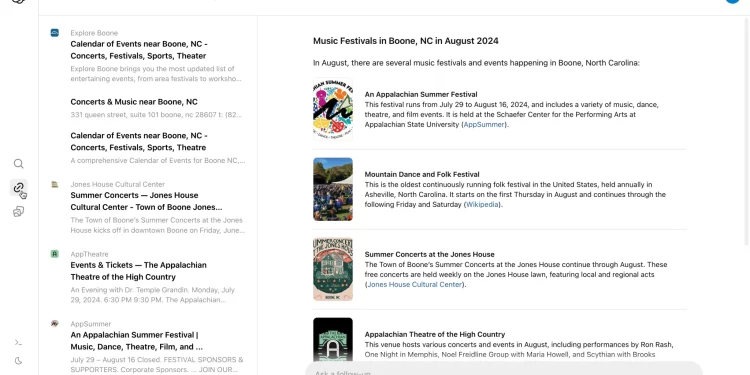OpenAI has announced the launch of SearchGPT, a new AI-powered search prototype designed to deliver fast, accurate answers by integrating conversational capabilities with real-time web information.
The temporary prototype, which aims to enhance users’ search experiences by offering clear and relevant sources, is currently available to a select group of users and publishers for testing and feedback.
This new initiative seeks to streamline the search process by combining the strength of conversational AI with up-to-date information from the web, addressing the often cumbersome experience of traditional search engines.
“Getting answers on the web can take a lot of effort, often requiring multiple attempts to get relevant results,” OpenAI stated in their announcement. “We believe that by enhancing the conversational capabilities of our models with real-time information from the web, finding what you’re looking for can be faster and easier.”
SearchGPT is designed to respond to user queries directly, providing clear and well-cited sources. Users can engage with the information through follow-up questions, much like a natural conversation, building context with each query. This approach not only simplifies the search process but also enhances user engagement with the content.
One of the key features of SearchGPT is its partnership with publishers and creators, aiming to support a thriving ecosystem. The platform highlights high-quality content, providing prominent citations and links to the original sources. This transparency and focus on attribution are intended to protect and promote journalism and original content creators.
Nicholas Thompson, CEO of The Atlantic, expressed optimism about the partnership, stating, “AI search is going to become one of the key ways that people navigate the internet, and it’s crucial, in these early days, that the technology is built in a way that values, respects, and protects journalism and publishers. We look forward to partnering with OpenAI in the process and creating a new way for readers to discover The Atlantic.”
OpenAI’s commitment to quality and transparency is echoed by Robert Thomson, Chief Executive of News Corp, who highlighted the importance of reliable information in AI-powered search. “Sam and the truly talented team at OpenAI innately understand that for AI-powered search to be effective, it must be founded on the highest-quality, most reliable information furnished by trusted sources,” Thomson said.
The introduction of SearchGPT also includes a feature for publishers to manage their appearance in search results, giving them more control over how their content is presented. This initiative is separate from the training of OpenAI’s generative AI models, ensuring that sites can participate in SearchGPT without being involved in data training processes.
As OpenAI continues to refine the SearchGPT experience, they plan to incorporate user and publisher feedback, focusing on areas like local information and commerce. The company envisions integrating the best features of this prototype into future versions of ChatGPT.
For those interested in exploring SearchGPT, OpenAI has opened a waitlist for the prototype, inviting users and publishers to participate and provide feedback. The company is keen to learn from this phase and share its findings with the broader community.

















